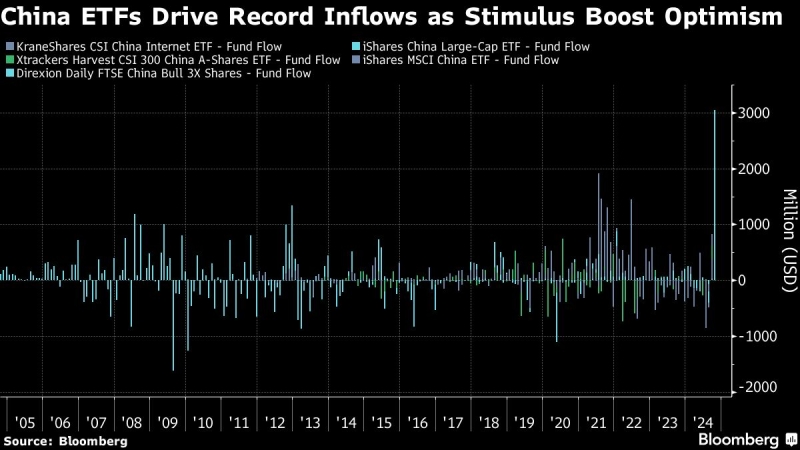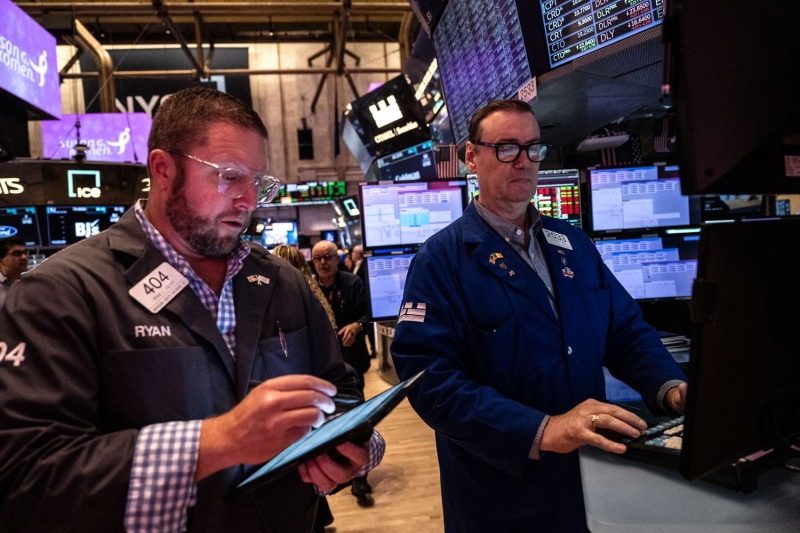
(Bloomberg) — Emerging-market currencies declined for a fifth consecutive session on Monday as traders scaled back bets on another big interest-rate cut from the Federal Reserve amid signs of a resilient US economy.
Most Read from Bloomberg
The MSCI Inc. gauge for developing-nation currencies closed 0.2% lower to post its longest streak of losses since July. The Malaysian ringgit and the Indonesian rupiah were among the worst performers in a basket of currencies tracked by Bloomberg. Oil prices rose as investors remain nervous about increased tensions in the Middle East.
Traders have been rethinking the path for the Fed’s policy easing since the release of stronger-than-expected US jobs data on Friday. US Treasury 10-year yields rose to trade above 4% as traders pared wagers on another half-point cut by the US central bank.
“The repricing of the US easing cycle is likely to keep EMFX under pressure in the short term,” said Luis Estrada, a strategist at RBC Capital Markets. Bearish bets on the US dollar are being dismantled, while some investors are also buying dollars to hedge their constructive wagers on EM rates, he said.
JPMorgan Chase & Co. strategists cut their recommendation on EM local-currency debt last week, citing the “big upside surprise” in payrolls and risks stemming from the US presidential election in about a month. That comes after EM local bonds posted their biggest quarterly advance since 2020.
The benchmark for emerging-market equities rose for a second day, mostly driven by gains in shares of Asian semiconductor companies. A subindex for Latin America stocks retreated. Optimism about stimulus measures has sparked a massive rally in Chinese stocks. Exchange-traded funds that buy the nation’s equities have seen billions of dollars in inflows.
China’s top economic planner will hold a press briefing on Tuesday to discuss a package of policies aimed at boosting economic growth. Details on potential fiscal policy stimulus will be key in determining whether the momentum of the current rally can continue or whether the relief might be only temporary, according to Nenad Dinic, an equity strategist at Bank Julius Baer in Zurich.
“In the short term, EM ex-China stocks may continue to underperform China due to rotational shifts in capital flows,” Dinic said.
In credit markets, El Salvador’s notes jumped after the government launched a tender offer for several debt instruments. Bonds maturing in 2050 rose as much as 2.8 cents on the dollar, indicative pricing collected by Bloomberg show.
–With assistance from Srinivasan Sivabalan.
Most Read from Bloomberg Businessweek
©2024 Bloomberg L.P.



